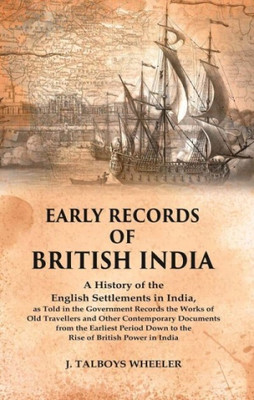Early Records of British India: A History of the English Settlements in India, as Told in the Government Records the Works of Old Travellers and Other Contemporary Documents from the Earliest Period Down to the Rise of British Power in India(Paperback, J. Talboys Wheeler)
Quick Overview
Product Price Comparison
This book Early Records of British India is a significant collection of source material from official documents that are now part of the India office records. It sheds light on the rise of British power with the East India Company and the decline of the Mughal Empire. The extracts are accompanied by an explanatory narrative, allowing for a coherent reading experience. Additionally, there is a comprehensive index for easy reference to specific circumstances. About The Author: James Talboys Wheeler (1824-1897) was a bureaucrat-historian of the British Raj. Born in Oxford, he initially pursued a career as a publisher and bookseller before becoming an author of student handbooks. He worked as a sub-editor for Henry George Bohn and later as a clerk in the War Office during the Crimean War. In 1870, Wheeler moved to Rangoon in Burma as Secretary to the Chief Commissioner of British Burma. He took a furlough in England from 1873 to 1876 and then returned to Calcutta, where he continued to produce reports and an official history of the Imperial Assemblage in 1877. Unlike his earlier reports, these works were permitted to be published.Wheeler retired in 1891.

